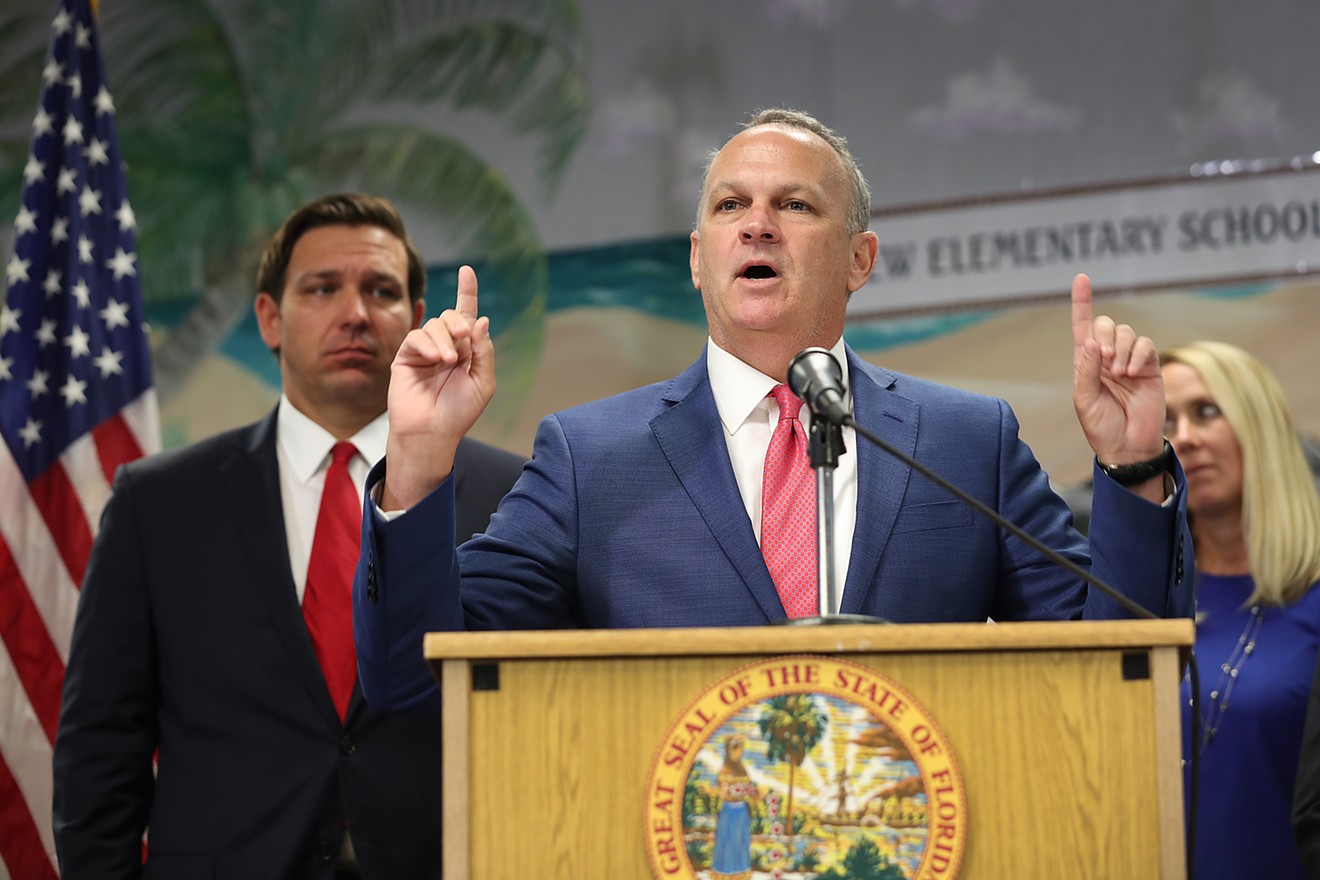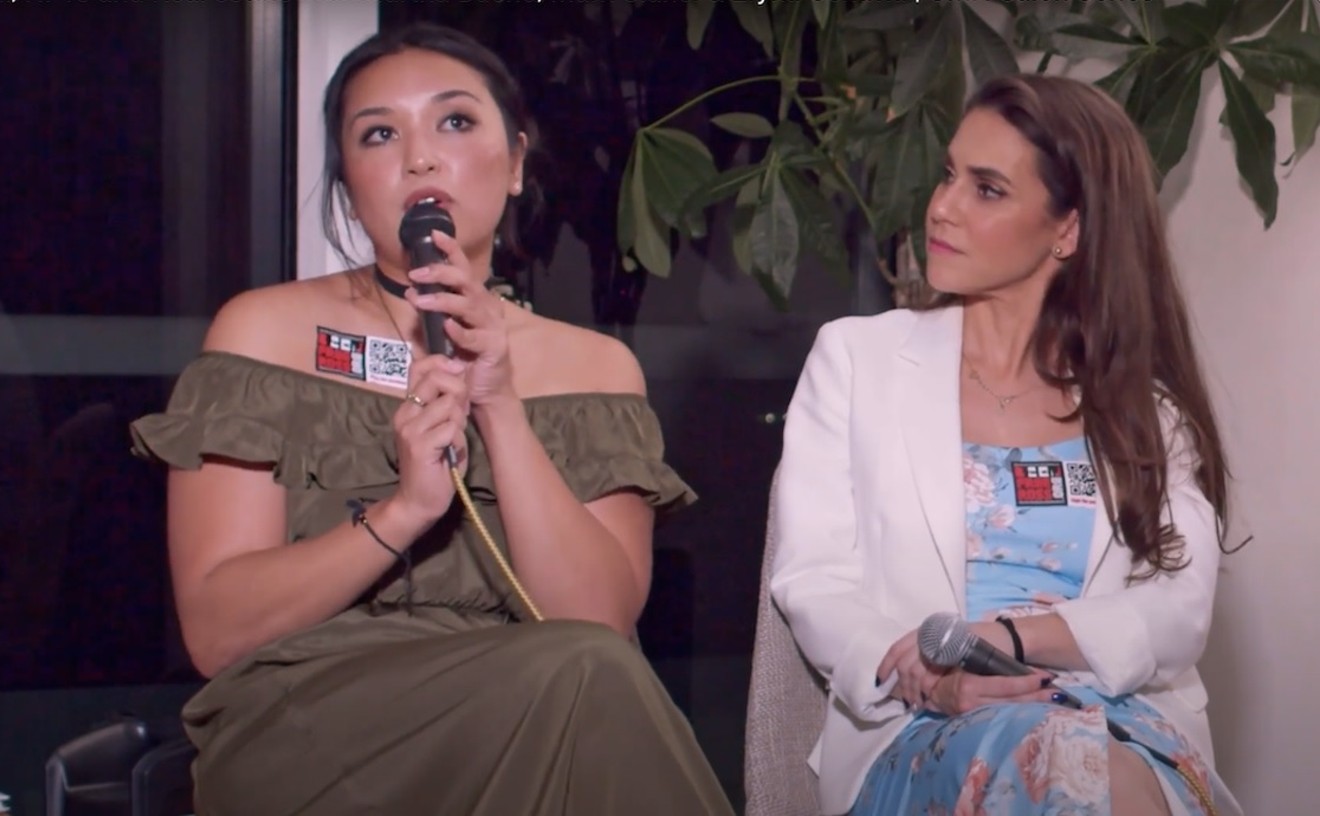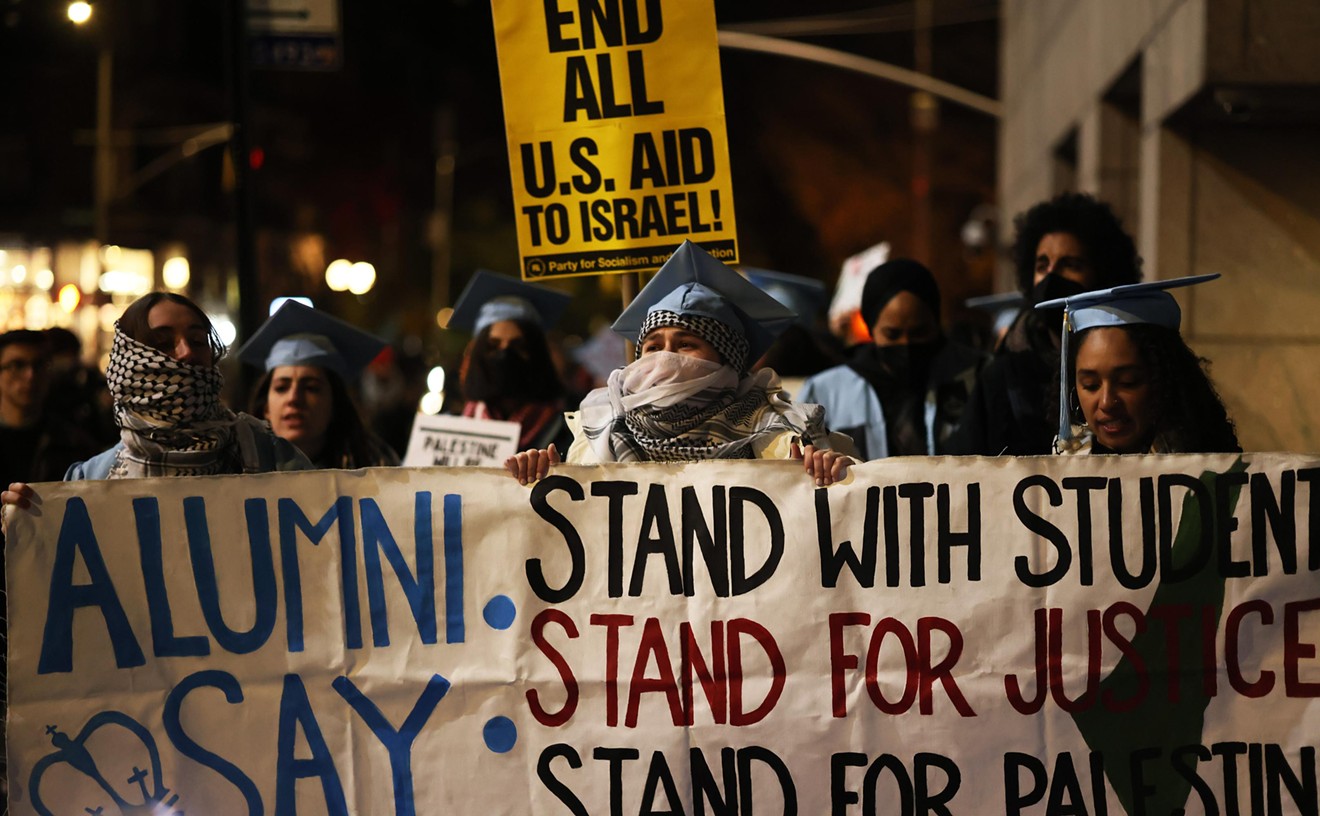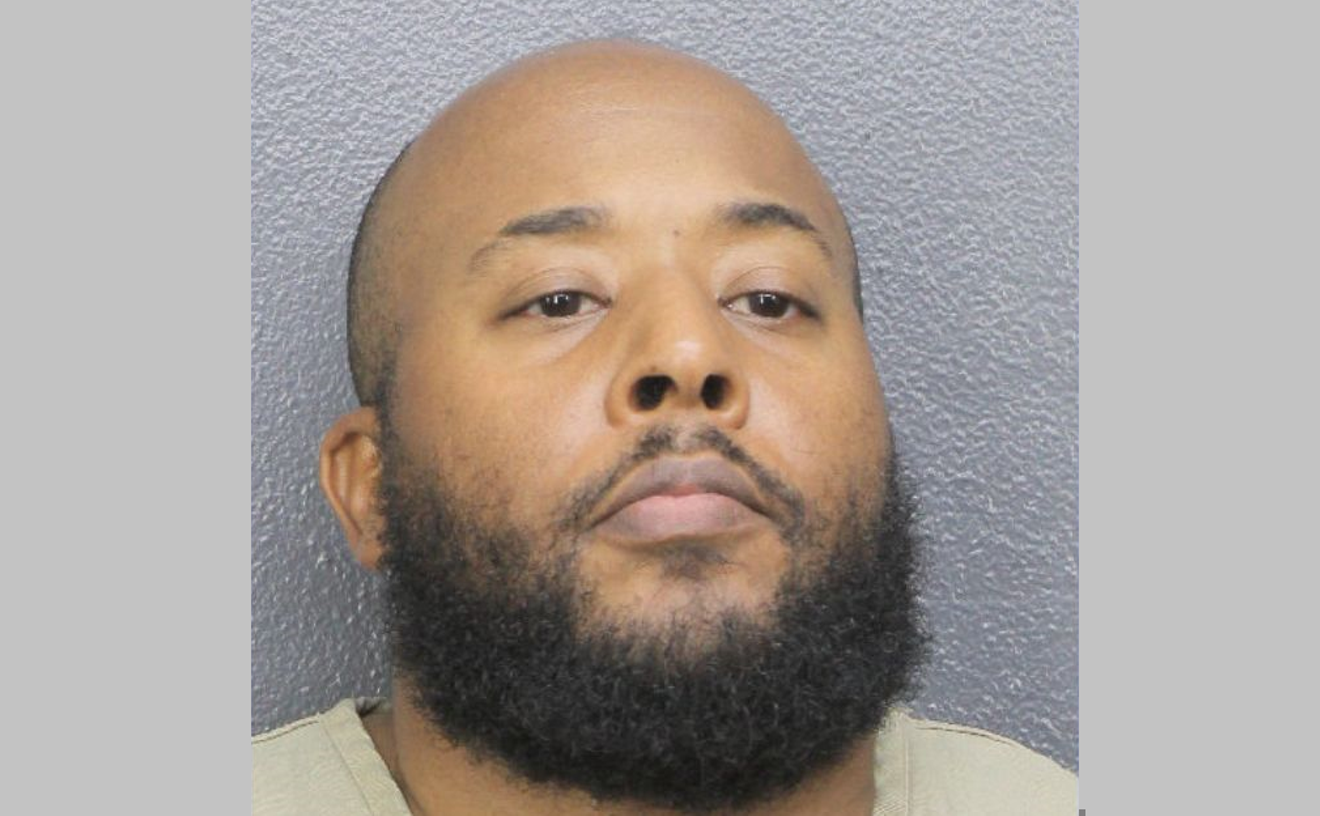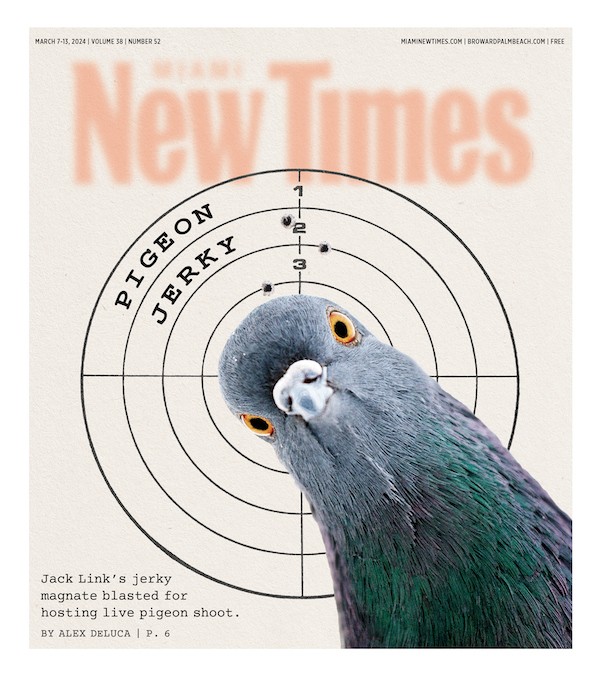Rufo, a Manhattan Institute senior fellow credited with fueling the furor over the teaching of critical race theory, proclaimed on his social media, "It is a privilege, not a right, to be employed by a taxpayer-funded university."
Though Wallenberg — the college's only U.S. history professor — had received glowing student evaluations and support from the social sciences department, news of his removal from New College was not particularly surprising.
Wallenberg had been a staunch critic of DeSantis' conservative overhaul of the New College board of trustees, and he invited prominent Black history professor Marvin Dunn, an outspoken DeSantis detractor, to lecture his students. As it happened, Wallenberg also taught a history-of-racism class that didn't quite align with the governor's attempts to stop schools from teaching about systemic prejudice in American institutions.
So did New College, a public school, fire Wallenberg for expressing his personal beliefs, in blatant disregard for his free speech rights? Or could the school avoid a First Amendment claim by pointing to his on-the-job actions as grounds for his removal?
The Foundation for Individual Rights and Expression (FIRE) argues Wallenberg's removal smacks of a constitutional rights violation. The group says college staff have the "right to speak as private citizens on matters of public concern, including on the functioning of a public college."New College of Florida has let the contract for visiting professor Erik Wallenberg expire. He will not be returning to the campus.
— Christopher F. Rufo ⚔️ (@realchrisrufo) June 6, 2023
I wish Professor Wallenberg well and hope his work on "radical theatre and environmental movements" finds a more suitable home. https://t.co/9bT2XBANMG
"New College faculty 'do not relinquish [their] First Amendment rights to comment on matters of public interest by virtue of government employment,'" reads a letter from FIRE's director of campus rights, Alex Morey, to Richard Corcoran, interim president at New College.
By all accounts, some of Wallenberg's most vocal criticism of Rufo and DeSantis came off-campus.
Alongside professor Debarati Biswas, he penned a March 2023 op-ed in Teen Vogue titled, "New College of Florida: the Conservative Christian Takeover by Ron DeSantis, Chris Rufo," skewering DeSantis' newly appointed board members and the governor's education agenda.
After the Teen Vogue article was published, Rufo posted screenshots of the two teachers' résumés and wrote, "Pure left-wing Mad Libs. Luckily, both are visiting professors."
Morey, a First Amendment attorney, says Rufo's tweets suggest Wallenberg's personal views about the takeover of the small liberal arts college played a part in the decision not to renew his contract. The lawyer wrote that, at a minimum, Rufo "seems to want the public to believe New College is ousting Wallenberg precisely because of his views."
While FIRE advocates for teachers' rights, it does not legally represent Wallenberg in the dispute.
In April, as tensions were mounting on the school's Sarasota campus, Wallenberg invited Dunn to lecture his class, in a move bound to ruffle feathers among DeSantis' newly appointed New College management. Dunn, a Miami-area Black history author and teacher, was one of the plaintiffs who filed a lawsuit in August 2022 to block DeSantis' so-called Stop WOKE Act, which restricts the teaching of systemic racism in public schools.
When New Times broke the news last month that Wallenberg's contract was axed, Rufo confirmed on his social media account that Wallenberg would not return to campus. He said the college is "reviving the great classical liberal arts tradition and setting a new standard for public education."
"I wish professor Wallenberg well and hope his work on 'radical theatre and environmental movements' finds a more suitable home," Rufo quipped in a tweet.
In responding to FIRE's letter, Corcoran did not provide a concrete reason for Wallenberg's removal but said Rufo is not involved in any "minor HR decisions." The New College president focused his response largely on Rufo's own constitutional right to express his opinions online.
Corcoran, a former speaker of the Florida House and onetime education commissioner for DeSantis, further argued that several faculty members still employed have publicly disagreed with the administration and board.
"Mr. Rufo's comments did not state that the contract was not renewed for a retaliatory reason," Corcoran's response letter states. "Even if he had said this, his speech is still protected. However, as I stated before, facts matter. The tweets simply do not say what you are asserting at all... Sticking to the facts rather than vitriol and virtue-signaling will be helpful to advance civil discourse in the future."
FIRE's inquiry to Corcoran references Sweezy v. New Hampshire, a 1957 case in which the U.S. Supreme Court ruled that a New Hampshire attorney general had unlawfully jailed university professor Paul Sweezy after he refused to answer questions about his connection to socialists and a lecture he gave at the university. Though it focused largely on due process, Chief Justice Earl Warren's plurality opinion is often cited as breaking ground for the notion of professors' "academic freedom."
"To impose any straitjacket upon the intellectual leaders in colleges and universities would imperil the future of our nation," Warren wrote. "Teachers and students must always remain free to inquire, to study, and to evaluate, to gain new maturity and understanding; otherwise our civilization will stagnate and die."
Since that ruling, the high court has issued a string of decisions that serve as guideposts on public school teachers' and other government employees' free-speech rights.
In Pickering v. Board of Education, the Supreme Court ruled that an Illinois teacher's First Amendment rights were violated when a local school board fired him for writing a letter to the Lockport Herald criticizing the board's allocation of funds. The high court's 1968 decision balanced the teacher's free speech rights against the board's interest in maintaining "efficiency in public services" and avoiding disruption in the workplace. The majority opinion emphasized that the teacher was commenting on a matter of "public concern."
Nearly four decades later, the high court ruled that First Amendment protections generally should not apply when government employees are speaking in the course of their official duties. The case, Garcetti v. Ceballos, revolved around a California prosecutor's claim that the state retaliated against him for writing a memo critical of how a sheriff's deputy handled a criminal case investigation. Justice Anthony Kennedy wrote, "When public employees make statements pursuant to their official duties, the employees are not speaking as citizens for First Amendment purposes."
FIRE says it is monitoring the situation at New College to ensure faculty members' and students' constitutional rights are protected.
The group's letter argues that public college trustees like Rufo have the right to voice their concerns and criticisms, but they cannot use their power to ban ideas with which they disagree. Morey warns that public school leaders who show "reckless or callous indifference" to established constitutional rights can be stripped of their immunity and held liable for monetary damages.
Wallenberg told New Times last month he was considering submitting a grievance through the union. He has not filed any legal action in court against New College or the State of Florida.
Morey said in a statement that Corcoran's stance "suggests the institution's leaders fail to understand their obligations to the public as government actors."
"How administrators and trustees at public colleges exercise their powers and responsibilities is a matter of public concern with legal ramifications, and New College's response does not clarify whether the basis for its decisions are lawful," Morey said.
